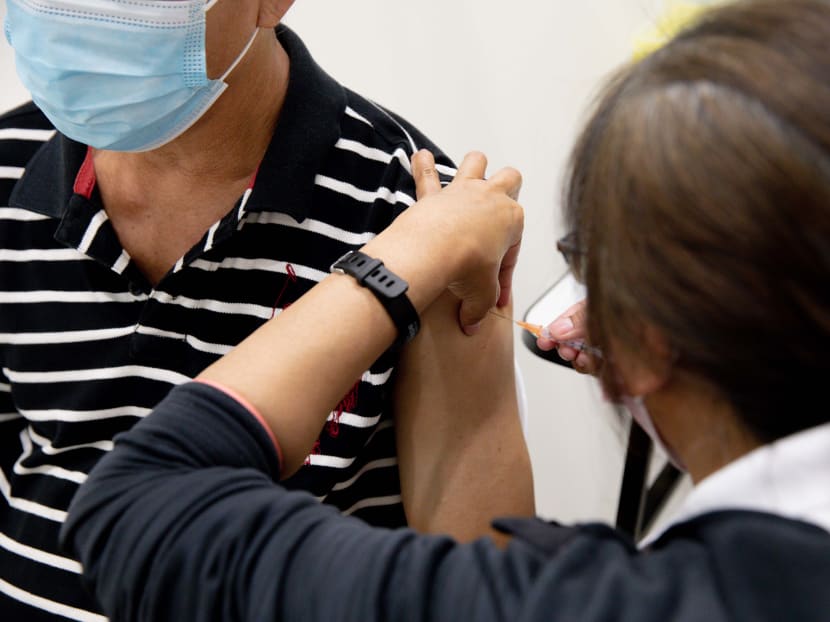Doctors, healthcare workers overwhelmed by surge in Covid-19 cases and changing protocols
SINGAPORE — Clinics who attend to and provide swab tests for Covid-19 patients have been much busier than usual, seeing up to twice the number of patients with acute respiratory symptoms now than they did before coronavirus cases in the community surged in September.
- Some GPs whom TODAY interviewed said they were seeing up to twice the number of patients with acute respiratory symptoms compared to a month ago
- This has led some to feel overwhelmed with the recent workload
- The ever-changing healthcare protocols have also added to the stress, they said
SINGAPORE — Clinics who attend to and provide swab tests for Covid-19 patients have been much busier than usual, seeing up to twice the number of patients with acute respiratory symptoms now than they did before coronavirus cases in the community surged in September.
And on top of this, the fluid situation has come with ever-changing protocols from the Ministry of Health (MOH), said the healthcare workers TODAY interviewed who are feeling the strain of the increased workload.
The recent surge in cases has made work “overwhelming”, said Ms Norashinta Mansoor, a clinic assistant at Healthmark Medical Clinic in Punggol.
This is because her clinic now tests up to 10 patients a day for Covid-19, double the figure from before the surge in cases last month.
As a result, the 39-year-old trained nurse has had to sanitise her clinic more frequently.
Work is also disrupted when someone who tests positive on their antigen rapid test walks into the clinic, as they have to be attended to immediately to reduce contact with other patients.
“On top of that, we also have to attend to other (non-Covid related) patients, so it’s a little more tiring and overwhelming now,” said Ms Norashinta.
One general practitioner (GP), who did not want to be identified, said since the coronavirus cases in the community shot up in the last month, she rarely sees a day when there are zero patients who test positive for Covid-19.
Coronavirus patients need a lot of reassurance as they are anxious, she said.
Echoing her, Ms Norashinta said the clinic where she works has also been getting more phone calls from “nervous and anxious” people enquiring on what they should do when they test positive on their antigen rapid test.
“People are nervous that community numbers are rising and they are unsure what to do, so they call.”
Health Minister Ong Ye Kung had said on Saturday (Oct 2) that his ministry would be looking to simplify Covid-19 protocols, which he acknowledged could be confusing and frustrating for the man on the street.
However, it is not just the public who are left confused but frontline healthcare workers, too.
FEARS OF GETTING INFECTED, CHANGING PROTOCOLS
With the Government’s Covid-19 task force warning that the number of coronavirus cases is only set to grow, Dr Wong Tien Hua, a 52-year-old GP at Mutual Healthcare Medical Clinic in Sengkang, said doctors and staff members are also more worried than ever about getting infected themselves.
“Most GPs detect one to two positive cases a day so there is the stress of potential contamination, and we had to take more care in handling patients and wiping down the clinic,” said Dr Wong, who added that the number of patients showing up with acute respiratory symptoms to his clinic has gone up by half.
“Previously it was pretty rare to get one positive (Covid-19) case, but now it’s almost a daily occurrence.”
Agreeing, Ms Norashinta, who has two young children, said that she was concerned for the health and safety of her family given the frequency with which she was coming into contact with Covid-19 cases.
Then there is the mental stress of making sense of the ever-changing Covid-19 protocols.
The GPs and healthcare workers whom TODAY interviewed said adapting to each new directive adds to the challenge of an already high workload.
One doctor raised the example of swabbing protocols for the home recovery programme, which changed in just a span of a week after the programme became default for fully vaccinated patients aged between 12 and 69.
Initially, patients under the programme had to take an exit swab test on the sixth day of their isolation period.
But just a week later, MOH scrapped the need for the exit swab test and patients could end their isolation period after 10 days.
The mounting frustration has even driven some GPs and healthcare workers in public hospitals to air their grievances on social media.
A blog post, and a recent thread on the r/askSingapore forum in Reddit, made the rounds in recent weeks due to the accounts from healthcare workers speaking out on this and other issues they face, such as manpower shortage and feeling burnt out for working non-stop since the pandemic started last year.
The doctor who did not want to be identified said she can get up to eight emails a day containing instructions from various healthcare institutions.
Because her clinic is a Public Health Preparedness Clinic, a Swab-and-Send-Home clinic and a clinic that does Covid-19 vaccinations, she would receive separate emails for each function.
“And then there is information from the press (which) is usually faster and more accurate than our emails,” she said.
“Without the support of my various chat groups (with other doctors), I think many of us will be totally lost.”
“It’s easy to see and treat patients, even 30 swabs a day is fine. But 10 emails a day is a big drain mentally,” she added.
One owner of two clinics located in the west of Singapore who requested anonymity agreed that it is “not easy” for the clinics’ staff during this period as directives from MOH keep changing.
While the owner does not work in the clinics, she observed that “there are always new instructions” from the ministry in the clinics’ emails.
Dr Stanley Peck, a 52-year-old GP who runs a clinic in Bukit Batok, said he expects the situation to be “tough until the end of the year”.
“We are coping well, but it’s challenging,” he said.














